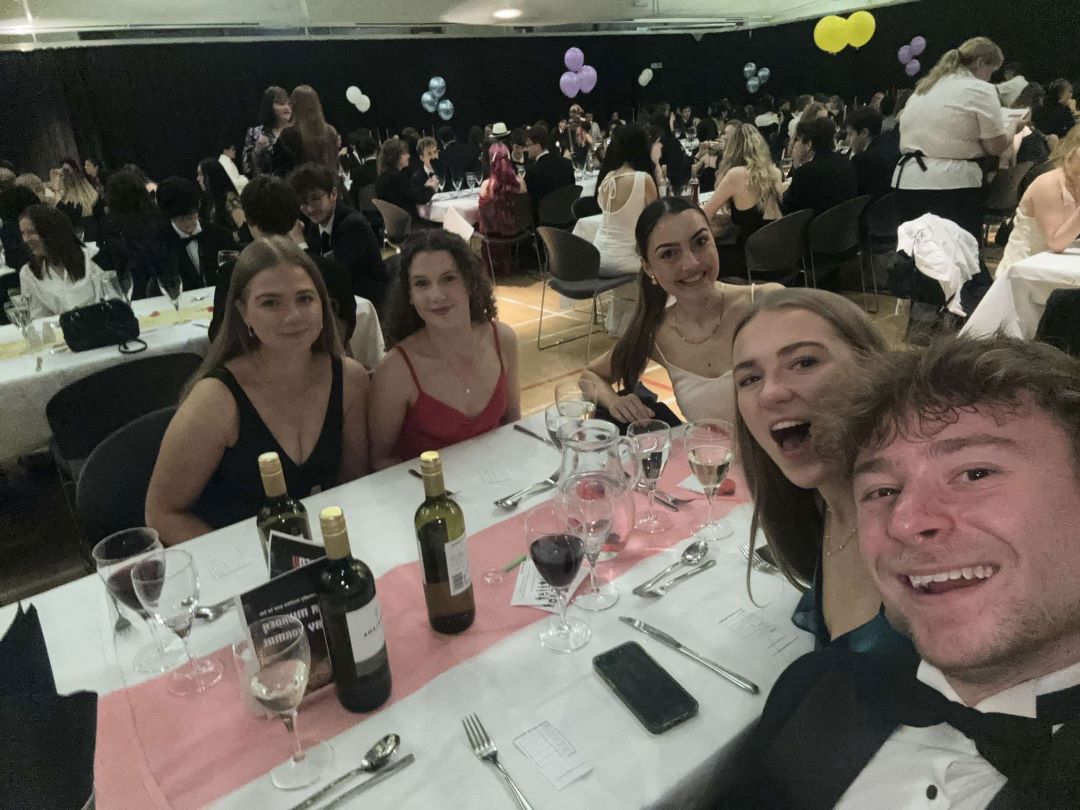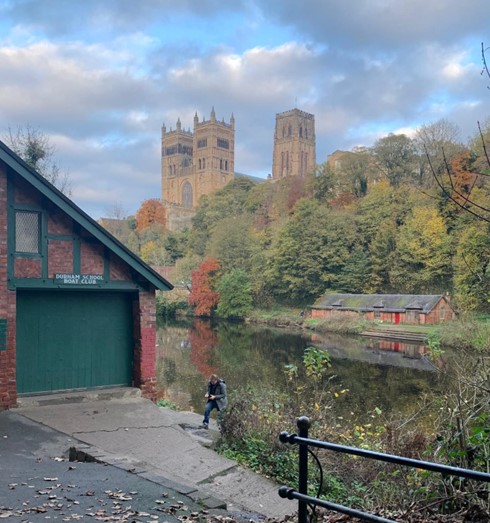When applying to Durham, I’m sure most of us were both intrigued and intimidated by the collegiate system. The endless hours spent binge-watching Jack Edwards created an idyllic expectation of the collegiate life. But what is the collegiate system? And how does it actually work?
Durham University is one of the very few UK Universities with a collegiate system, which is what makes us quite special. The collegiate system allows students the opportunity to find a community/family at Durham where they can meet students from all backgrounds, courses and degree levels. It makes the process of transitioning to university much easier as you’re constantly surrounded by people who understand you, and are going through a shared experience.
Which is why it’s important to understand the ins and outs of the collegiate system before diving in to university and college life.
How many colleges are there?
Durham University has 17 colleges all located across the City, the Bailey, and what’s known as the Hill (near main Science Site).
- Hatfield {Bailey}
- Castle (University College) {Bailey}
- St Cuthbert’s Society {Bailey & Old Elvet}
- St Chads {Bailey}
- St Johns {Bailey}
- St Hilde Bede {the main bulding is close to Gilesgate but the college community is moving to a new location in 2024 near the city centre due to refurbishments}
- St Aidan’s {Hill}
- Grey {Hill}
- Trevelyan {Hill}
- Ustinov (Postgraduate only college)
- South {Hill}
- John Snow {Hill}
- Van Mildert {Hill}
- Stephenson {Hill}
- Josephine Butler {Hill}
- Collingwood {Hill}
- St Marys {Hill}
I’ve done my research, now what do I do?
Whether you’ve attended an open day, spent hours googling and searching social media for all there is to know about each college, the time has come for you to rank your college preferences. Also, the tricky part. Upon receiving an academic offer from Durham, you’ll be asked to rank 16 of the colleges according to your preference (1 as your first, 16 as your last). My biggest advice to incoming students is to take this process seriously, and to rank ALL 16 according to your preference properly and not just the first 3 or 6. Also, to properly do your research, whether that’s attending open days, speaking to ambassadors online or browsing through the social media pages. The most important thing to remember is, college preferences are not 100% guaranteed! The university will do its absolute best to allocate you your top preferred college, but that will not always be the case. Which is why it’s important you rank all colleges properly.
Preliminary allocation, allocation, and reallocation
Understanding the lingo of the collegiate system is integral, it avoids confusion, stress and anxiety during the allocation process. Fear not, I am here to break it down:
- Preliminary Allocation- Once you rank all 16 colleges according to preference, you will be entered into the college allocation process, usually beginning in May. And will receive a preliminary allocation until results day. This allocation is NOT your final allocation, and is rather done in preparation for your final allocation.
- Final Allocation– Once your place at Durham has been confirmed after results day, you will receive a final allocation. This allocation may be different to your preliminary allocation or for some not, but it is your final and confirmed allocation.
- Reallocation– While incredibly stressful and unfortunate for some, reallocations do happen (not always!) when a college becomes oversubscribed, and yes, sometimes you are reallocated a college you were not expecting or to your delight, are reallocated a college you originally ranked higher. However, the University will always try its best to reallocate you to suitable or similar college to your preferences.
The most commonly asked question after preliminary allocation or final allocation is whether you can change your college if you are unhappy with the choice. The answer is situational. If your allocated college cannot provide for your medical or accessibility needs, then a request to change your college can be made. But, if it’s simply you not liking your college, then that is not grounds for a request to change your college and you cannot change your college based on that.
How does the allocation process actually work?
You’re probably wondering, are allocations first serve? Whether you firmed Durham? Well, the answer is quite complicated. The Allocation process takes into account various factors when allocating you a college and is an incredibly complex process and system to understand. Applicants are grouped into two categories:
- Applicants who have filled out the preference form, ranking their colleges.
- Applicants who have not ranked their college preferences.
Applicants from both categories will go through the allocation process until finally, a preliminary allocation is provided.
The allocation criteria take into consideration the required quota for each course in a college and your college rankings. Meaning, if a college is overly subscribed or you were not allocated your top choice, it probably means they’ve filled the required number of students from that course. You may think these criteria isn’t fair, but, it’s a necessary criterion as it allows for an equal and diverse mix of courses/course levels within each college; which makes the college experience and student life at colleges better for students 😊
What if I don’t get my first choice?!!
Yes, sometimes, you won’t be allocated your first choice, or your second or even 6th. But it’s important to know that whichever college you are allocated, you will end up loving and proudly defending when it comes to college rivalries and debates. Your first choice may be the one you wanted, but your allocated college will end up being the one you needed all along.
You’ll find an amazing community waiting for you at your college, regardless of whether it was your top choice or not, and you’ll have some amazing memories to look back on further down the years after you graduate 😊
Discover more
Find out more about the undergraduate college application process here
Read more student stories about College here
Read about Harry’s experience of being reallocated

 Ghala Timraz
Ghala Timraz






